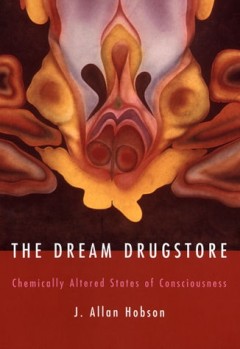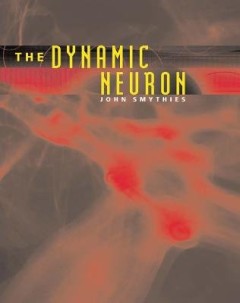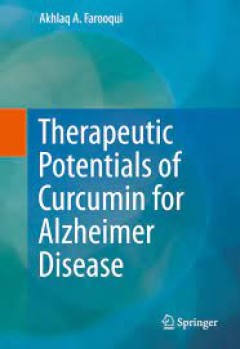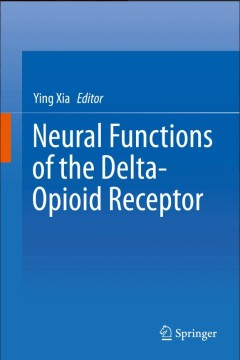Filter by

The Dream Drugstore: Chemically Altered States of Consciousness
"A Bradford book."In this book, J. Allan Hobson offers a new understanding of altered states of consciousness based on knowledge of how our brain chemistry is balanced when we are awake and how that balance shifts when we fall asleep and dream. He draws on recent research that enables us to explain how psychedelic drugs work to disturb that balance and how similar imbalances may cause depressio…
- Edition
- -
- ISBN/ISSN
- 9780262275491
- Collation
- 1 online resource (xv, 333 pages) :illustrations, photographs.
- Series Title
- -
- Call Number
- -

The dynamic neuron
"A Bradford book."The traditional model of synapses as fixed structures has been replaced by a dynamic one in which synapses are constantly being deleted and replaced. This book, written by a leading researcher on the neurochemistry of schizophrenia, integrates material from neuroscience and cell biology to provide a comprehensive account of our current knowledge of the neurochemical basis of s…
- Edition
- -
- ISBN/ISSN
- 9780262283984
- Collation
- 1 online resource (viii, 150 pages) :illustrations
- Series Title
- -
- Call Number
- -

High Calorie Diet and the Human Brain Metabolic Consequences of Long-Term Co…
The purpose of this monograph is to present readers with a comprehensive and cutting edge description of neurochemical effects of diet (beneficial and harmful effects) in normal human brain and to discuss how present day diet promotes pathogenesis of stroke, AD, PD, and depression in a manner that is useful not only to students and teachers but also to researchers, dietitians, nutritionists and…
- Edition
- 1
- ISBN/ISSN
- 978-3-319-15253-0
- Collation
- XVIII, 308
- Series Title
- -
- Call Number
- 574 QUI h

Respiratory Health
The tracheobronchial tree is open to the environment surrounding the body. Respiration has thus the essential bearing on general morbidity, vulnerability to disease and immunity. Further, respiratory function shapes the neuropsychological responses to succumbing to disease, controls the mind-to-body interaction and sets the perception of quality of life. The chapters of this book deal with the …
- Edition
- Ed. 1
- ISBN/ISSN
- 978-3-319-18793-8
- Collation
- -
- Series Title
- -
- Call Number
- -

Toxicity and Autophagy in Neurodegenerative Disorders
Comprehensive overview of different aspects of autophagy as it relates to neurodegenerative diseases. The pathogenesis of the main neurodegenerative disorders includes either the accumulation of altered or misfolded proteins or exposure to several toxics. Autophagy constitute one of the two principal cellular pathways implicate in the clearance of these material and can serve as a neuroprotecti…
- Edition
- -
- ISBN/ISSN
- 978-3-319-13939-5
- Collation
- -
- Series Title
- -
- Call Number
- -

Inflammation: the Common Link in Brain Pathologies
This unifying theme of this book-with sections on mechanisms of defense and neuropathogenesis, neurological diseases, infections of the nervous system, neuropharmacology, and novel therapies-is interactions of the immune and nervous systems. It also discusses the role of inflammation as a key mediator of different brain disorders. There have been significant scientific advances in the multidisc…
- Edition
- -
- ISBN/ISSN
- 978-981-10-1710-0
- Collation
- X, 345
- Series Title
- -
- Call Number
- 611 INF

Therapeutic Potentials of Curcumin for Alzheimer Disease
This is the first book on the market that explores the importance of curcumin for the treatment of neurological disorders. It has been estimated that 35.6 million people globally had dementia in 2010 and the prevalence of dementia has been predicted to double every 20 years. Thus, 115.4 million people may be living with dementia in 2050. Alzheimer’s disease (AD) is the leading cause of dement…
- Edition
- -
- ISBN/ISSN
- 978-3-319-15889-1
- Collation
- -
- Series Title
- -
- Call Number
- -

fMRI: From Nuclear Spins to Brain Functions
This volume explores the revolutionary fMRI field from basic principles to state-of-the-art research. It covers a broad spectrum of topics, including the history of fMRI's development using endogenous MR blood contrast, neurovascular coupling, pulse sequences for fMRI, quantitative fMRI; fMRI of the visual system, auditory cortex, and sensorimotor system; genetic imaging using fMRI, multimodal …
- Edition
- -
- ISBN/ISSN
- 978-1-4899-7591-1
- Collation
- -
- Series Title
- -
- Call Number
- -

Neural Functions of the Delta-Opioid Receptor
This book is the first to summarize the progress of research on neural functions of the the delta opioid receptor (DOR) to date. This receptor, a member of the opioid receptor family, was traditionally thought to be primarily involved in pain modulation. Recent new findings have shown its unique role in neuroprotection and many other functions. Many scientists from a number of independent labor…
- Edition
- 1
- ISBN/ISSN
- 978-3-319-25493-7
- Collation
- XV, 685
- Series Title
- -
- Call Number
- -

Targeting the Broadly Pathogenic Kynurenine Pathway
Tryptophan metabolism via kynurenine pathway plays a critical role in both health and a variety of human diseases. This book highlights the known associations between kynurenine pathway and various disease states, as well as examines the current status of drug development and clinical trials of compounds known to alter tryptophan metabolism. The research plays a critical role in molecular targe…
- Edition
- -
- ISBN/ISSN
- 978-3-319-11870-3
- Collation
- XV, 430
- Series Title
- -
- Call Number
- -
 Computer Science, Information & General Works
Computer Science, Information & General Works  Philosophy & Psychology
Philosophy & Psychology  Religion
Religion  Social Sciences
Social Sciences  Language
Language  Pure Science
Pure Science  Applied Sciences
Applied Sciences  Art & Recreation
Art & Recreation  Literature
Literature  History & Geography
History & Geography